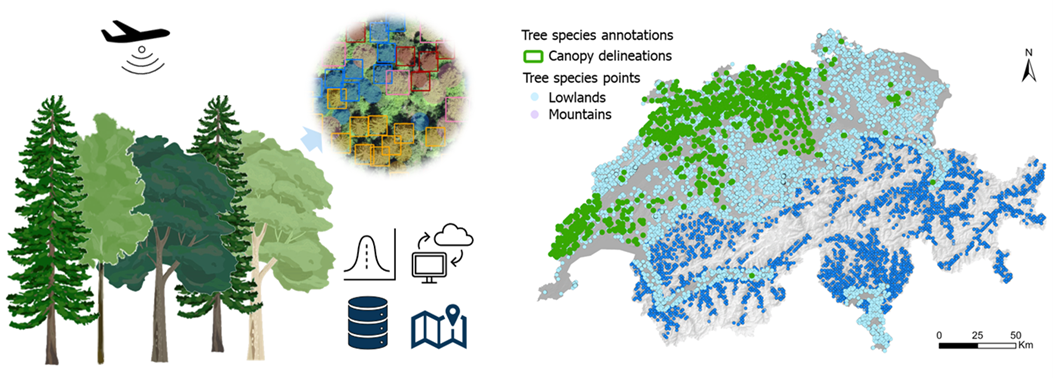Tree species identification using deep learning
Background:
Tree species maps are essential for better forest management, forest cover, biomass, and biodiversity assessment. The temporal and spatial location and identification of tree species is extremely important and necessary for forest management and conservation. The use of remote sensing products in forestry allows for time flexible and cost-effective assessment of forest characteristics. Deep learning methods enable high predictive accuracy and have the potential to revolutionize forestry understanding, data collection and enable the development of numerous applications. Tree species identification is essential for assessing biodiversity, understanding forest resilience to climate change, and developing forest management strategies. However, identifying tree species is challenging, and further research needs to focus on developing new models to address this issue.
Aim:
This work aims to apply novel and powerful deep learning approaches to detect and identify individual trees and tree species in mixed forests.
Methods:
The potential of convolutional neural networks (CNNs) or Transformers and high-resolution RGB imagery will be evaluated for mapping tree species in mixed forests. The analysis will be implemented using ArcGIS Pro and Python. A database of >80000 geolocated trees and 20000 tree canopy delineations are already available for the DL model training.
Wanted:
Highly motivated student interested in modelling and who is willing to learn.
The project has a flexible starting date.
You will get to:
- Learn new and highly required theoretical and practical knowledge about Deep Learning object recognition that will be of great importance for your future work.
- Expand your network by discussing your work with experts from the intersecting fields of forest sciences, and computer sciences.
- Be a co-author on a publication resulting from this work.
- Be part of a motivated, fun, and energetic team of scientists.
Supervisor:
Dr. M. Beloiu Schwenke from the Department of Environmental Systems Science and Prof. K. Schindler from the Department of Civil, Environmental and Geomatic Engineering.
If the idea of participating in cutting-edge interdisciplinary research excites you, please contact mirela.beloiu(at)usys.ethz.ch. The FORM team is looking forward to hearing from you!
